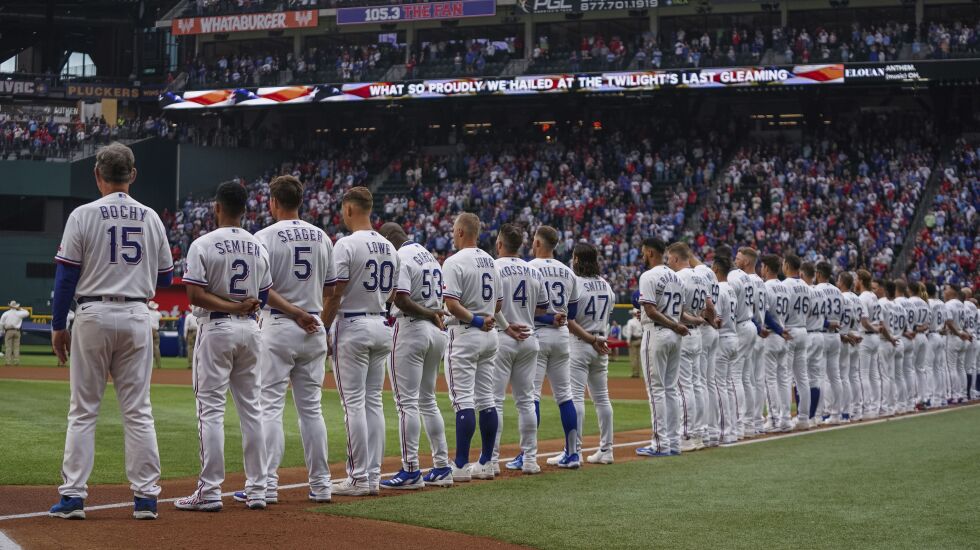
An annual study reviewing diversity hiring for Major League Baseball reported a record low of Black players on Opening Day rosters for the second straight year.
Thursday’s report card from The Institute for Diversity and Ethics in Sport at Central Florida issued an overall grade of C-plus, with a B for racial hiring and a C for gender hiring. The report examined a range of positions at MLB’s headquarters and within franchises using data collected by the league from March shortly before the start of the 2023 season.
Those grades were similar to the previous year, when the league had a B-minus overall, a B for race and a C-plus for gender.
But the study found Black players represented just 6.2% of players on Opening Day rosters, down from last year’s previous record low of 7.2%. Both figures are the lowest recorded in the study since it began in 1991, when 18% of MLB players were Black.
TIDES director and lead study author Richard Lapchick noted the decline comes despite MLB’s implementation of numerous programs to increase Black youth participation in the U.S. that could ultimately move the numbers down the line.
“I think the trend might continue another year or two until all the programs they’ve put in place have that type of impact,” Lapchick said in an interview with The Associated Press.
“It’s hard to say. I think eventually it’s going to turn around in the direction that baseball wants. Will it ever get back to where it was? I’d be surprised if it does.”
MLB didn’t immediately respond to a request for comment about the report Thursday afternoon.
The study’s findings come after last year’s World Series marked the first time there were no U.S.-born Black players since 1950, shortly after Jackie Robinson broke the MLB color barrier.
“I think that if it’s possible that the player number is going to be reversed, then it’s going to happen because of the efforts (MLB is) putting into it,” Lapchick said. “But there are other factors at play. If you’re a 13-year-old Black kid growing up and you look at Black role models in other sports and in baseball, you’ve got to believe your best chance is not in baseball.”
Still, there are indications of potential improvement.
Four of the first five players picked in last summer’s amateur draft were Black for the first time ever. Those four, and more than 300 MLB players, had participated in diversity initiatives such as the MLB Youth Academy, DREAM Series and the Reviving Baseball in Inner Cities (RBI) program.
MLB also has pledged $150 million in a 10-year partnership with the Players Alliance. That nonprofit organization of current and former players works to increase Black involvement at all levels.
The study awarded MLB with an A-plus for diversity initiatives, and not all are focused solely on players. It referenced the newly created MLB University program, a 10-month career-development course to prepare diverse candidates for front office or on-field roles. The study also highlighted the Diversity Pipeline Program to grow the pool of qualified women and others for operations and on-field roles.
Another example: the league has conducted in-person and virtual recruiting efforts with students at Historically Black Colleges and Universities (HBCU) as outreach for summer internships, the study reported.
It’s all part of what Lapchick described as baseball “putting out a maximum effort” in diversity efforts.
TIDES issues annual report cards on racial- and gender-hiring practices in professional leagues and for college sports. Thursday’s MLB release is the first of the 2023 season reports.






